By Sophie Holloway
Wine producers and enthusiasts gathered in Areni village on Saturday to take part in the Areni Wine Festival, a yearly celebration of Armenian wines and viticulture.
Located in the Vayots Dzor region, the village of Areni is lauded as a viticultural epicentre, boasting high-altitude vineyards, indigenous grape varieties, and even a historic winery, which was discovered in 2007 in a nearby cave and dates back to 4100 BC.
Clik here to view.
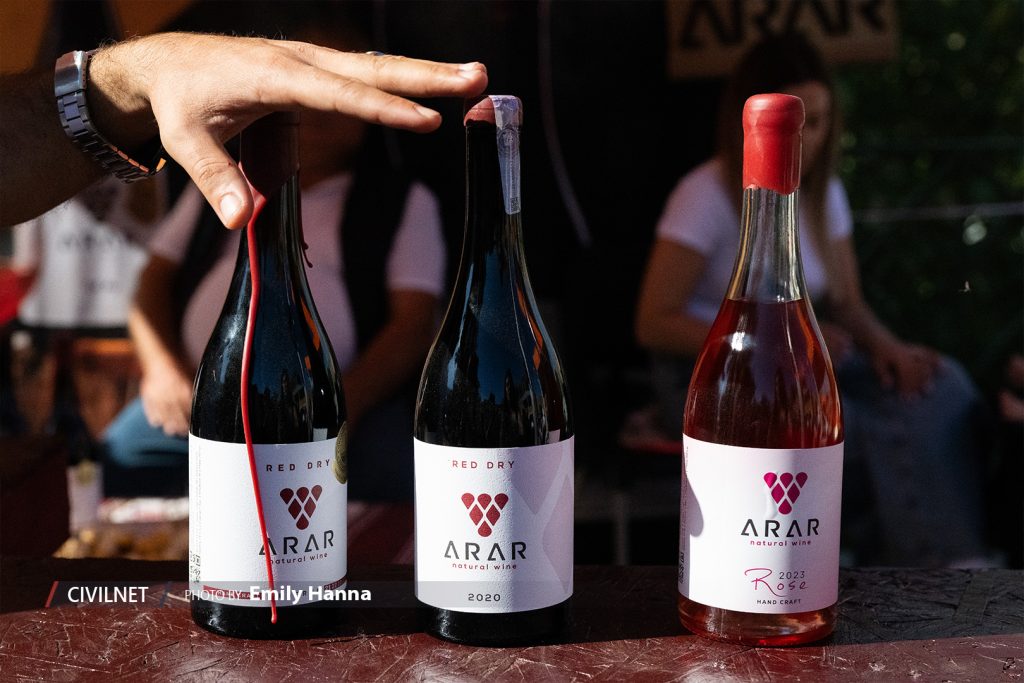
This date has particular significance for one of the wine-makers at the festival, Maria Saghatelyan, whose popular red wine, “6100”, leaves many guessing the origin of the name.
“Our main line of wine is called 6100,” says Saghatelyan. “Do you know why? It’s because nobody knows what it means and that’s exactly why we chose it. They say it’s the altitude of the vines, the mountain vines, but really it’s the age of the oldest wine-making facility in the world, found here in Areni.”
Saghatelyan’s brand, Trinity Canyon Vineyards, started out in 2009, spearheaded by a trio of “enthusiastic and determined wine aficionados.” 6100 is their flagship wine, made exclusively from Armenian grape varieties. Its vineyards are located around 1300 metres above sea-level and on volcanic soils, which contributes to their unique flavour, Saghatelyan explains.
Clik here to view.
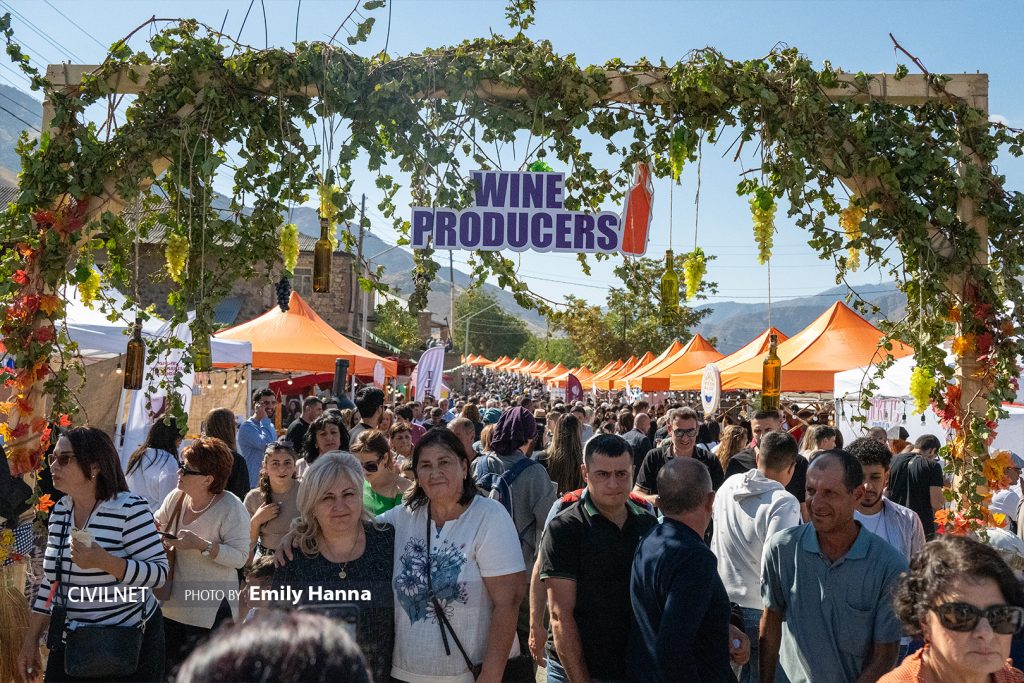
The company also grows non-native vines, which it blends with the Areni variety. These “Khachmeruk Wines” include such varieties as Cabernet Sauvignon, Merlot and Chardonnay. “The ‘crossroad’ wines are very symbolic,” said Saghatelyan, representing the contact between different wine-making regions and traditions.
The festival is part of the broader Areni Festival Foundation. The association hosts festivals across Armenia, and aims to boost local economies, revitalise traditions and support family-run businesses.
Alen Margaryan, a wine producer from Areni, has been promoting his family wine business at the festival for two years. “The challenge is showing people that you can find really good wine in Armenia,” says Margaryan. “This is a great event, because you can invite people to come and try your product.”
Clik here to view.
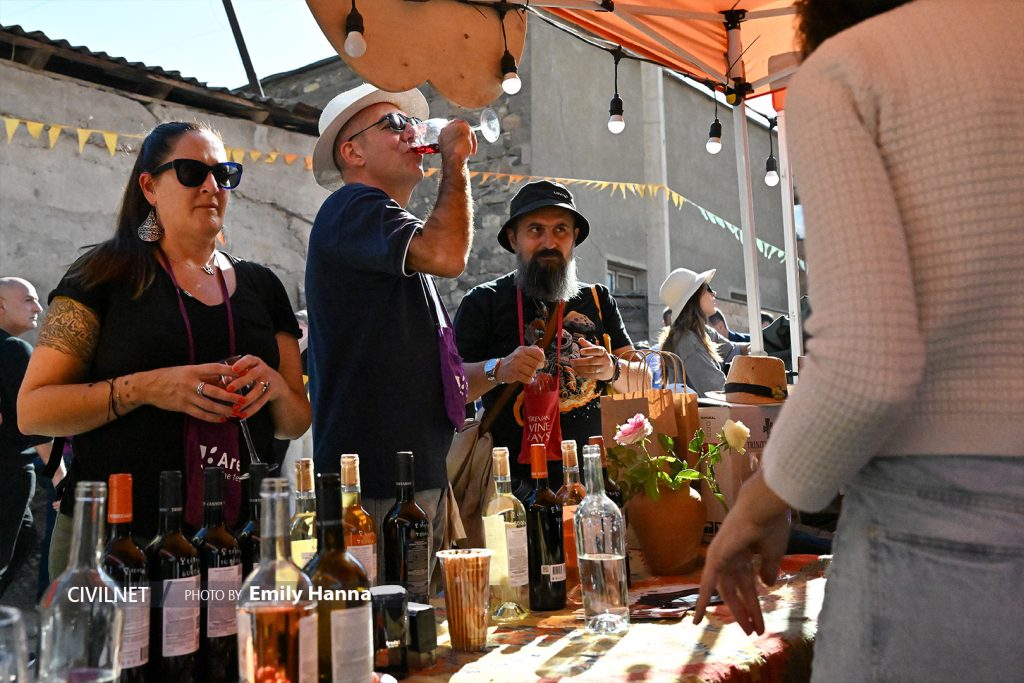
“This started out as a hobby,” says Margaryan. “My grandmother and grandfather taught us. But in 2018, we decided to make it more professional. We felt that not only our family should try our wines, but other people, too.”
Margaryan’s brand, Arar Wine, specialises in dry natural wines, including red and rosé, grown and bottled in the village of Rind in the Areni municipality. Some of their wines have gone on to win awards, including their Arar Reserve 2019 edition, which received a gold medal at the Concours Mondial de Bruxelles, an international wine-tasting competition in Belgium.
Hosted on the first Saturday of October, the festival attracts hundreds of wine enthusiasts, amateurs and sommeliers from across Armenia and the globe each year. Activities include free wine-tasting, exhibitions and traditional music and dancing. The Artsakh community also typically have a space to showcase their crafts and cuisines and perform traditional song and dance to the festival-goers.
Clik here to view.
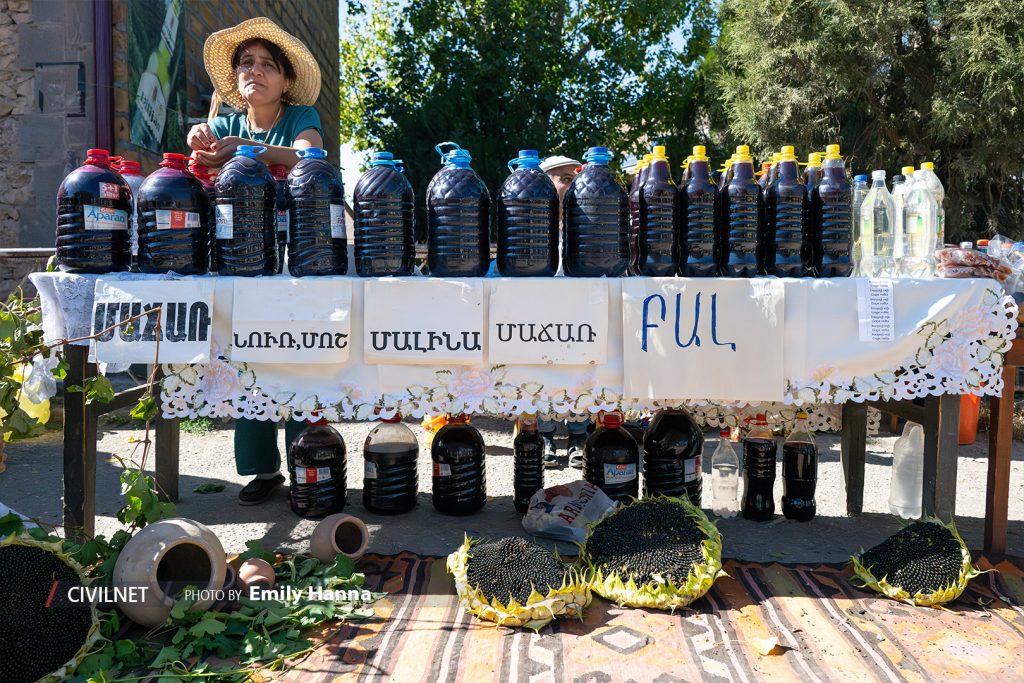
Aside from putting the village of Areni on the map, the festival also puts Armenia on the world wine market. The wine industry in Armenia has expanded rapidly in the past decade, with exports increasing from 15 to 36 countries, according to the American Association of Wine Economists. Today, there are 150 wine-producers in Armenia (compared to only 25 in 2018), and 55 indigenous grape varieties used in Armenian wine-making.
Clik here to view.
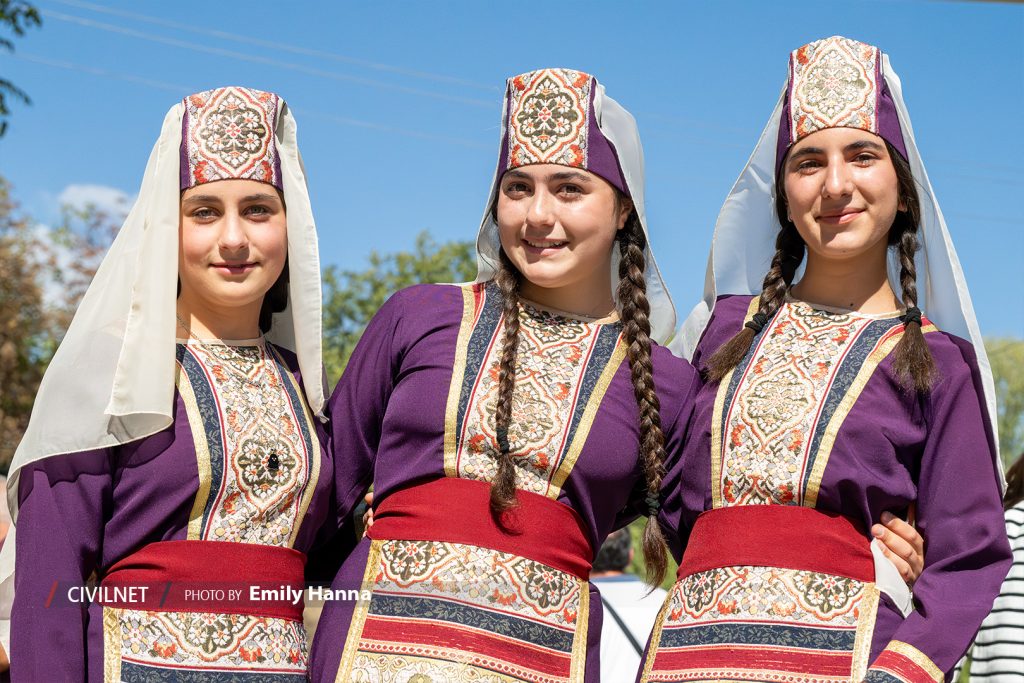
For wine-makers like Margaryan and Saghatelyan, events such as the Areni Wine Festival offer vital opportunities to promote their products and educate people, both home and abroad, about Armenia’s wine-making heritage and high-quality wines. “We need people to help us,” says Saghatelyan. “To spread the word, taste Armenian wines and tell people that Armenia is, in fact, its own country!”
The post Areni Wine Festival celebrates its 16th year appeared first on CIVILNET.